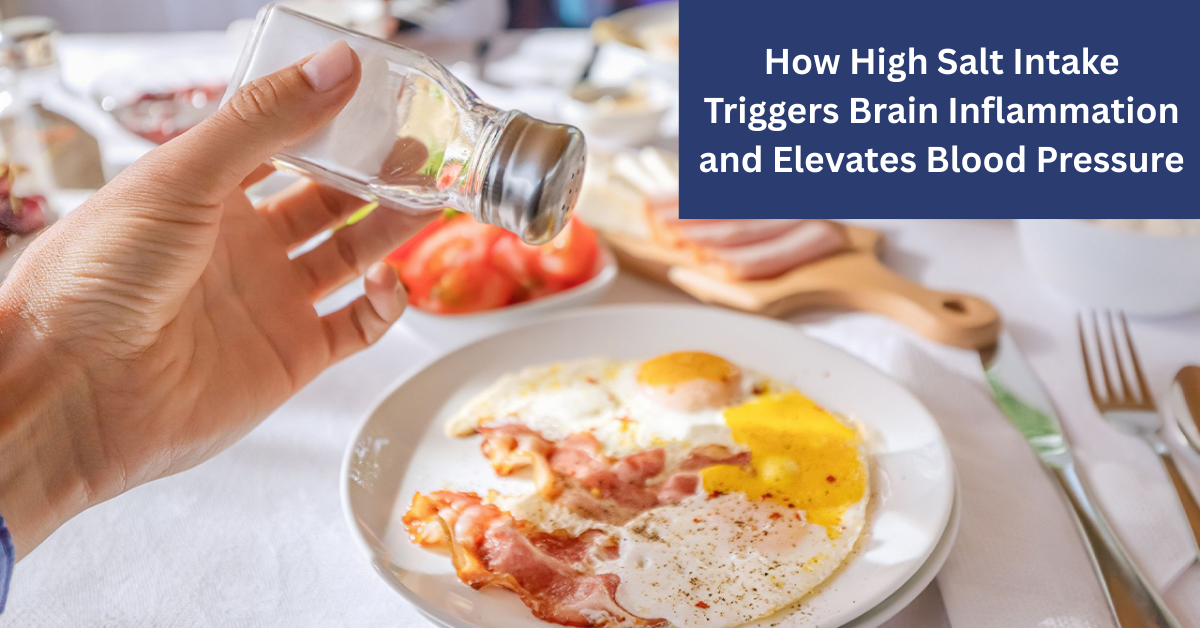Salt is a common ingredient found in nearly all kitchens and restaurants. While a certain amount of salt is essential for bodily functions, excessive consumption is becoming an alarming health concern. Recent studies have uncovered the subtle yet dangerous link between high salt intake, brain inflammation, and increased blood pressure, signaling a new wave of health risks that many might not be fully aware of.
Understanding the effects of too much salt on the brain and cardiovascular system is crucial, especially for younger audiences who might underestimate the impact of dietary choices. This article explores how excess salt affects brain health, contributes to inflammation, and raises blood pressure, alongside tips to manage intake for better overall well-being.
Understanding Salt and Its Role in the Body
Salt, primarily composed of sodium and chloride, plays critical roles such as maintaining fluid balance, supporting nerve function, and regulating muscle contractions. Our bodies need sodium to transmit nerve impulses and maintain blood pressure within a healthy range. However, when consumed in excessive amounts, salt becomes detrimental rather than beneficial.
The typical American diet often contains far more salt than recommended due to processed foods, fast food, and added table salt. This chronic overconsumption can disrupt the body’s delicate balance, leading to a wide range of health problems.
How Excess Salt Intake Leads to Brain Inflammation
Recent scientific discoveries are showing that excessive salt consumption does more than just increase blood pressure. High salt levels can trigger inflammatory responses in the brain. Inflammation in brain tissue is linked to cognitive decline, mood disorders, and neurological diseases.
Research indicates that too much salt causes immune cells in the brain to release inflammatory molecules. This inflammation can damage brain cells and interfere with normal brain functions such as memory, learning, and emotional control. The inflammation is thought to be driven by a cascade of molecular and cellular processes triggered by sodium overload.
Connection Between Salt and Elevated Blood Pressure
High blood pressure, or hypertension, is one of the most well-known consequences of excessive salt intake. Sodium causes the body to retain water, increasing blood volume and forcing the heart to work harder. This strain raises blood pressure over time, damaging blood vessels and organs.
Elevated blood pressure is a major risk factor for heart attacks, strokes, kidney disease, and even dementia. The relationship between salt and hypertension is so pervasive that reducing salt intake is a primary recommendation for managing and preventing high blood pressure.
Key Statistics on Salt Consumption and Health Risks
| Statistic | Value |
|---|---|
| Average daily salt intake in the US | Above recommended levels |
| Recommended daily sodium limit | Approximately 2300 milligrams |
| Percentage of adults with high blood pressure | Nearly half of US adults |
| Increased risk of brain inflammation linked to high salt | Significant based on recent research |
How Brain Inflammation Impacts Cognitive and Emotional Health
Brain inflammation caused by too much salt can impair cognitive abilities like memory, attention, and problem-solving. It can also contribute to mood issues such as depression and anxiety. The brain’s neural connections become compromised when inflammatory molecules disrupt normal signaling processes.
Chronic inflammation in the brain is associated with neurodegenerative diseases like Alzheimer’s and Parkinson’s. Managing salt intake is emerging as a potentially important preventive measure to protect brain function and mental health.
Sources of Excess Dietary Salt
Many people unknowingly consume high levels of salt because it is hidden in everyday foods. Processed meals, canned soups, fast food, snack items, condiments, and even some breads contain high amounts of sodium. Cooking at home with fresh ingredients and limiting processed foods can significantly reduce salt intake.
Choosing low-sodium alternatives and reading nutrition labels carefully helps identify foods that exceed healthy salt levels. Awareness and education are key to controlling salt consumption in modern diets overloaded with processed foods.
Tips to Reduce Salt Intake for Brain and Heart Health
Making simple changes can greatly reduce salt intake while improving overall health:
- Opt for fresh fruits and vegetables instead of canned or processed products.
- Use herbs, spices, lemon juice, or vinegar to enhance flavor instead of salt.
- Limit fast food and snacks like chips and salted nuts.
- Prepare meals at home to control how much salt is added.
- Read food labels and pick products labeled “low sodium” or “reduced salt.”
- Be mindful of sauces and dressings that typically contain high sodium.
Long-Term Benefits of Salt Moderation
Reducing salt intake can lower blood pressure and reduce the risk of heart disease and stroke. It may also minimize brain inflammation, helping protect cognitive function and emotional well-being. Adopting a low-sodium diet contributes to better overall longevity and quality of life.
Encouraging younger generations to develop healthy eating habits early on can decrease their risk of future health issues related to salt. The benefits of moderation compound over time, promoting a healthier brain and heart for years to come.
The Role of Public Health Policies in Salt Reduction
Governments and health organizations are increasingly focused on reducing population salt intake through policies and awareness campaigns. Regulations on food labeling, reformulating processed foods, and public education programs aim to help consumers make healthier choices.
These initiatives are critical because much of the salt intake comes from packaged and restaurant foods beyond individual control. Policy efforts combined with community involvement are essential to progress.
Final Thoughts: Taking Control of Your Salt Intake
Understanding the hidden dangers of excessive salt consumption—especially its impact on brain inflammation and blood pressure—is vital for maintaining good health. By choosing lower-sodium foods and adopting mindful eating habits, individuals can protect their brain, heart, and overall wellness.
Empowering yourself with knowledge and practical ways to reduce salt can lead to a happier, healthier life. Whether you’re young or old, the time to act on salt consumption and its health effects is now.




